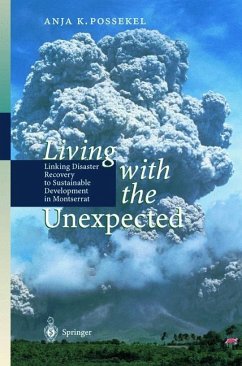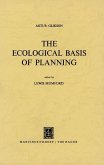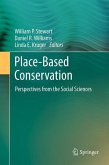Living with the Unexpected deals with complexity and uncertainty, two major challenges in a world faced with climate change and hazards. The study focuses on appropriate methods which enable vulnerable communities to cope effectively with natural hazards and disasters. The central goal of the book is an applicable combination of hazard management and development planning. Therefore, the reconstruction process following a disaster is understood as an opportunity for structural changes and self-organisation processes that foster sustainable development. In this context the potential of scenario planning as an evolutionary and participatory learning approach is addressed. The empirical research concentrates on the time before and during the volcanic crisis on the Caribbean Island Montserrat. Particular methods used are a systematic analysis of the complex system Montserrat, more than 200 interviews with stakeholders and citizens - concentrating on resource and hazard perceptions - as wellas the organization and execution of various scenario workshops. The study shows that the opportunity to realise sustainable development on the island with the help of a participative, adaptive reconstruction process is better than ever. The population is sensitised to disasters and an uncertain future. Their preparedness to accept measures which are designed to reduce their vulnerability is high. This book demonstrates how we can learn to live with the Unexpeted.
Bitte wählen Sie Ihr Anliegen aus.
Rechnungen
Retourenschein anfordern
Bestellstatus
Storno








